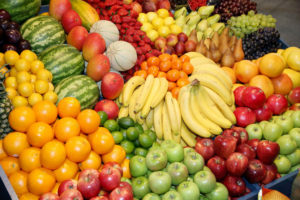Estimates from the United Nations Food and Agriculture Organisation (FAO) reveal that almost 40% of all fruits and vegetables in the whole of Africa are lost after harvest due to inadequate pre- and post-harvest handling methods. This is one of the most daunting challenges that Nigerian farmers face today.

These losses can seriously affect the food availability in the market whether it be for fruits or any other consumable items. The losses are a major cause of food waste and an impediment to farmers’ potential profits.
Extreme Losses: Nigeria’s Unnatural Fruit And Food Problem
Nigeria is experiencing an exorbitant yearly loss, amounting to N3.7 trillion, resulting mainly from wastage of food and inadequate cold chain logistics. This prevailing adversity can be accounted for by lack of decent roads, as well as lapse in the preservation of the cold supply chain and disregard for effective cold chain management. Nigeria is a country blessed with a vast array of fruits, comprising pineapple plantain/banana, mango, papaya, tangerine, strawberries and large-seeded grapes, among other indigenous varieties.
Although obtainable for most part of the year due to limited cultivation practices, cropping systems incorporating other crops alongside fruit crops are undertaken by farmers to optimise productivity and avoid potential crop setbacks. Though an essential staple of diet and livelihood for many, failure in investment into adequate fruit tree plantations may be the cause behind poor growth aside from its long gestation period.
Enter The GAIN PLAN: An Evolutionary Step In Reducing Postharvest Losses
Recently the Global Alliance for Improved Nutrition (GAIN) has launched a program focused on increasing yields of fruits and vegetables through incorporating technology, building business-to-business relations and improving the supply chain systems. The main objective of the programme known as PLAN (The Postharvest Loss Alliance for Nutrition) is to cut postharvest losses and increase yields, profits and quality of the food, especially fruits focusing on tomatoes.
GAIN, through its PLAN Nigeria initiative, is resolute to put a stop to empty stomachs. This project revealed that in Nigeria, 50% of the nutrient-packed fresh fruits and vegetable production gets squandered or goes unutilised, nearly half postharvest. With this come three main issues:
- Ineffective transportation without cold chains for storage
- Inadequate packaging
- Rudimentary processing techniques/structures
Giving Nigerian farmers more benefits from their effort is what the program plans to achieve. The central goal of the PLAN scheme was to boost collaboration amongst value chain members by establishing an Alliance, improving supply chain problems with better facilities, strengthening capacity through 30 booster programmes and motivating small-scale enterprises to adopt enhanced methods and technology via Business-to-Business (B2B) instruction.
The Alliance of influential and self-contained individuals worked together to achieve a shared aim, namely to reduce postharvest loss/waste. This resulted in the amalgamation of the PLAN project; it was multi-sectoral project with more than 230 associates which imparted training on postharvest management and food security to over 1,400 supply chain actors.
The B2B Engine provided an interflow of information and experience pertaining to cold chains, packaging as well as food processing. Seamlessly enough, they saw results as follows; Nigeria witnessed a decrease from 35% – 40%, down to below 10% relying upon Reusable Plastic Crates (RPCs) for transportation purposes.
PLAN also granted assistance by promoting rewarding advances planned at preventing further losses coming out of harvests, such as renewable energy cells, harmonised primarily through solar power facilitating off-grid storage cold rooms with insulated boards produced by local manufacturers in Nigeria. This ended up cutting imports costs and increasing consumer demand.
GAIN’s PLAN Nigeria project has undeniably heightened Nigerian farming to an unprecedented level, inspiring rave reviews in every part of the country.
By Jackie Edwards
